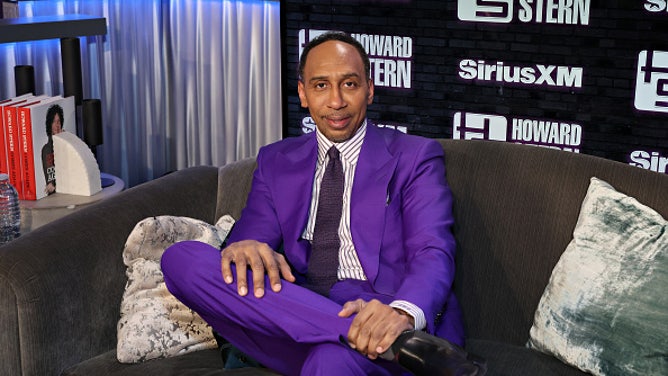ESPN's Failed Investments Into Woke Sportscasters Leaves The Network No Choice But To Pay Stephen A.
ESPN recently offered Stephen A. Smith a $90 million contract over five years, at $18 million per year. Smith is expected to turn down the offer, seeking closer to $25 million annually.
We anticipate ESPN will, eventually, meet Smith's demands.
He holds leverage behind the scenes. The race card is firmly in his back pocket. He is already using it, lamenting that three white men – Joe Buck, Troy Aikman, and Pat McAfee – make more than him.
Sources tell OutKick that executives within ESPN fear Smith becoming its fiercest critic on the outside. He already criticizes the company on his self-owned podcast. Imagine what he'd say about the network if it didn't pay him what he wants.
But Smith also holds leverage on-air.
ESPN has lost plenty of signature faces of the company before: Dan Patrick, Bill Simmons, Colin Cowherd, Mike Tirico and Keith Olberman (in the 90s, pre-derangement) to name a few.
The difference is that there were readily available pundits to take their place. That is not the case today. Not only is Stephen A. the biggest star at ESPN, but the company has failed to develop a suitable bench behind him.

NEW YORK, NEW YORK - JANUARY 23: Stephen A. Smith visits SiriusXM's 'The Howard Stern Show' at SiriusXM Studio on January 23, 2024 in New York City. (Photo by Cindy Ord/Getty Images for SiriusXM)
ESPN spent the past decade trying to elevate the likes of Bomani Jones, Katie Nolan, Mina Kimes, Sarah Spain and Maria Taylor. None of them proved worthy.
Jones, Nolan, and Spain were given shows and failed – epically. Taylor self-destructed by trying to ride the Black Lives Matter movement of 2020 to a large payday. Kimes is still at ESPN, but is hardly a ratings draw.
Simply put, ESPN prioritized diversity and PR over the interests of sports fans. Consequently, viewers who used to idolize ESPN pundits now despise them.
And that trend continues today. Rather than investing in talents who love sports and appreciate their viewers – Laura Rutledge, Matt Barrie, Frank Isola, and Jorge Sedano – the network had decided to spend its resources elevating preachy, privileged brats like Monica McNuttjob, Chiney Ogwumike, and internal bully Ryan Clark.
Stephen A. ought to appreciate knowing his successors are so utterly unimpressive.
We explained last year how ESPN's failure to create a new wave of star personalities led to the network leasing a ready-made star in Pat McAfee. ESPN agreed to pay McAfee, who is not an employee, around $30 million a year in total.
If Smith leaves, ESPN is left with McAfee and a few big names over 50: Michael Wilbon, Mike Greenberg, Scott Van Pelt and Tony Korneshier. Had the company successfully invested in worthy talents, it wouldn't need to pay Smith what he demands.
By comparison, Fox News host Jesse Watters was a Day 1 star when he moved to primetime in 2021. So was Greg Gutfled when he moved into late-night a year later. ESPN doesn't have a Watters of Gutfeld on its roster.
ESPN executive Burke Magnus recently stated Smith's signature morning show, "First Take," would continue in the event Smith leaves the company. Shannon Sharpe would be the frontrunner to replace him, but relying on a notorious diva with anger issues isn't wise.
Other than Sharpe, options are scarce. "First Take with Elle Duncan" would challenge "High Noon with Bomani Jones" for the least successful ESPN show ever created.
Thus, Stephen A. Smith will get his way in the form of the money he wants. ESPN believes it has to keep him, even if it must overpay. And at $25 million a year, Smith would be overpaid.
His value to ESPN is tied to cable ratings. Cable television is an industry in rapid decline. Paying Smith that type of money to star on cable would be the equivalent of a print newspaper company paying a reporter seven figures 10 years ago.
Smith wants a five-year deal. In five years, we can expect cable to be 30% less prominent than it is now. The future of ESPN is live rights and streaming+, neither of which Stephen contributes.
Forget the almighty ace card, which will still come into play, ESPN's failure to build toward the future is Stephen A's greatest form of leverage.
Note: Fox News and OutKick share common ownership.